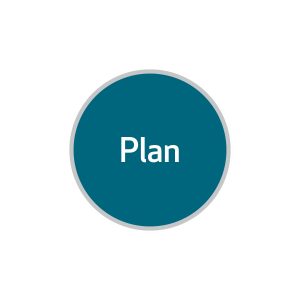Process: Kaizen for YOU!
Process: Kaizen for YOU!
The process of leadership development is about making incremental changes in behaviors over time and through repetition. You may be familiar with kaizen–a continuous improvement process in lean manufacturing and technology development. Leadership development is like kaizen for YOU!

Identified skill at this step: Managing Conflict
- Increase your self-awareness by gathering data
- Re-assess your values, motivators and preferences
- “What is important to me?”
- “How have my values, motivators and preferences changed over time? Why?”
- Leverage the resources and tools available to you on this website as well as those within your organization to help you assess your tendencies, strengths and weaknesses

Plan to work on Managing Conflict: “I would like to challenge the status quo and encourage others to do so as well. I want to voice my opinions especially when I feel strongly about something.”
- Develop a plan that answers these questions:
- “What does success look like for me?”
- “What are my aspirations?”
- “What skill am I wanting to develop?”
- “Why ….?

Take Action on Managing Conflict: “I will ask to lead the upcoming cross-departmental task force that is being formed to provide solutions in the next quarter. The task force will include senior managers as well as some of my peers. I have a peer/colleague in one of the other departments with whom I feel comfortable asking for straight feedback.”
- Identify an experience(s) that will help you achieve your plan.
- “What projects/task forces/committees/roles exist in the organization that might give me the specific experience to develop this skill(s)?”
- “What other experiences outside of work could help me develop this skill?”
- “How can I carry out my current job differently to more fully develop this skill?”
- Identify individuals within and/or outside of your current organization with whom you could consult and gain feedback along the way.

Reflect and Learn on Managing Conflict: “I was able to facilitate intense discussions with dissent from several individuals while taking a stance on the issue. I didn’t get defensive. When I asked my peer for feedback, he told me that I did a good job of standing my ground. I wasn’t flustered. I now feel more confident that I am able to stay calm, collected and articulate my thoughts.”
- As you progress through the experience, ask yourself these questions:
- “What went well? Why?”
- “What specifically did I do well?”
- “What didn’t go well? Why not?”
- “What would I do differently?”
- “What were specific challenges I faced? What impact did they have on the project/team/myself? How did I overcome them? ”
- “What opportunities do I have now going through this experience?”
“The only source of knowledge is experience.” —Albert Einstein

Outcome & Learning to Apply: “The task force I have been leading this quarter is in the final stages of making recommendations to the executive team. I presented the data we collected. While not all of the individuals on the task force were in 100% agreement, they were able to come up with a recommendation that meets everyone at least halfway or more and were able to gain commitment behind the recommendation.”
- Apply your learning from the experiences you identified.
- Restart the process over.
Remember….
It is not about how much time you spend in each step of the process but instead about making sure you go through each step. The process is not a one-time experience. Like continuous improvement, it is for the rest of your career.